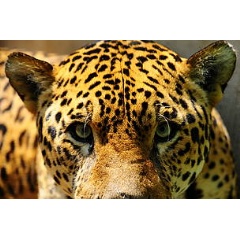WWF Statement for Business on the Amazon Fires
The Amazon is burning – business must act now to end deforestation
Today’s fires are devastating natural ecosystems in the Amazon, the Chiquitano Forest, the Chaco, the Pantanal, and the Cerrado. Still spreading, the crisis threatens the economic, social and environmental vitality of Brazil and neighboring countries.
Companies working with governments, farmers, communities and scientists have extensive experience in addressing deforestation and progress has been made in many countries. However, to conserve and restore the Amazon, the Cerrado and other critical ecosystems, now is the time for companies to significantly increase support for and investment in the sustainable management of natural resources.
In the Brazilian Amazon, between January and August 2019, the total burned area was 4.3 million hectares, 71% larger than the average burned area for the same months over the last ten years; and this year, areas with deforestation alerts increased more than 30% in May, 88% in June and 278% in July compared to the same months in 2018.
Forest fires are also raging in Indonesia, Angola, Congo, Siberia and other parts of the world. As in the Amazon, many of these fires are a consequence of deforestation resulting from agricultural expansion, land grab, speculation and unsustainable commodity production – most of which are illegal.
Forests and other natural habitats are our primary source of freshwater and clean air, regulate our climate and act as critical carbon sinks, and provide habitat for a myriad of plants and animals. In the Amazon alone, over 35 million people depend directly or indirectly on the forest for their incomes and livelihoods.
To counter and prevent any repeat of this ecological and social catastrophe, WWF calls on companies to commit, act and advocate for nature and people.
- Strengthen commitments to deforestation and conversion-free supply chains and landscapes, signaling a clear business case for nature and looking beyond current 2020 commitment deadlines.
Act
- Implement deforestation and conversion-free projects at scale through multistakeholder engagement and investment at landscape level; including through economic incentives and sharing implementation costs along value chains.
- Use the Accountability Framework (AFi) as a reference for best practice. WWF and partners have developed Operational Guidance to help companies deliver on commitments in Brazil, Paraguay and Argentina in line with the AFi.
- In Brazil specifically:
-Soy supply chain – help strengthen the Soy Moratorium in the Amazon, and engage with the Cerrado Working Group (GTC) and Statement of Support for the Cerrado Manifesto, aiming for conversion-free by 2020.
-Beef and Leather supply chains – improve supply chain management and monitoring systems in the Amazon, implement full traceability and transparency (including for indirect suppliers), and expand similar approaches in the Cerrado and other ecosystems.
- Call on governments to develop, and enforce, stronger social and environmental policies and regulations that halt conversion of natural habitats (forests, grasslands, wetlands and peatlands), and ensure forests continue to thrive for nature and people.
For further information and advice, please contact WWF Brazil on deforestationandconversion@wwf.org.br or WWF Markets Practice on markets.practice@wwfint.org
( Press Release Image: https://photos.webwire.com/prmedia/6/246352/246352-1.jpg )
WebWireID246352
This news content was configured by WebWire editorial staff. Linking is permitted.
News Release Distribution and Press Release Distribution Services Provided by WebWire.
